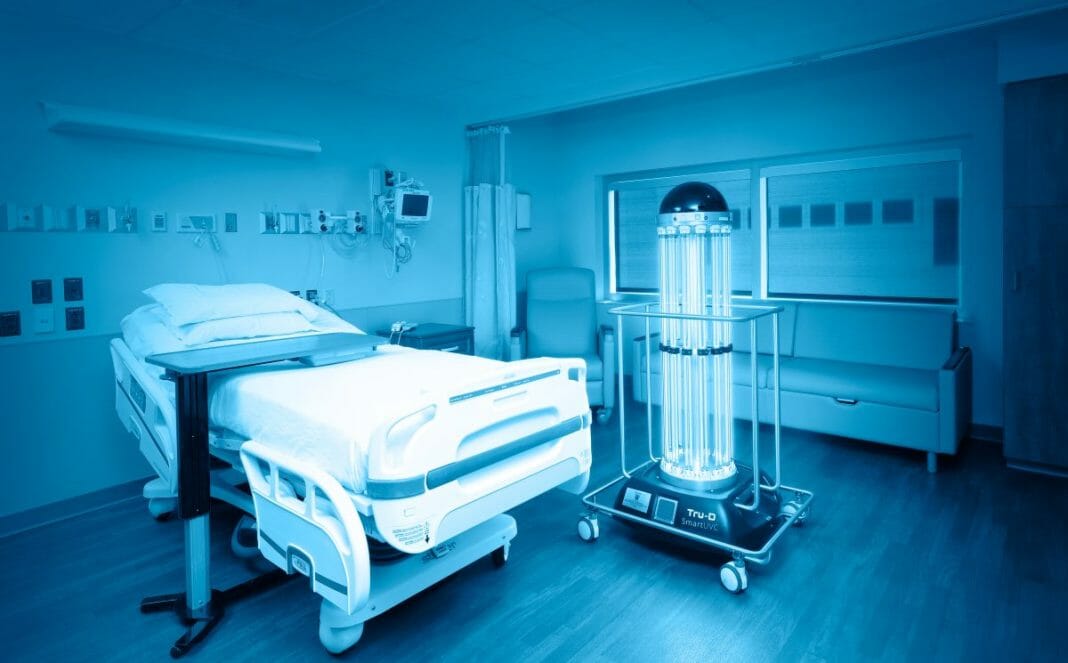Solvay, a global market leader in specialty materials, has announced the development of an innovative new portfolio of UV-C stabilizers. They are designed for use in demanding hygiene applications, where polyolefin surfaces are treated with ultra-violet (UV) light of the UV-C spectrum (200-280 nm) to fight against COVID and hospital-acquired infections.
The new proprietary stabilization technology represents an important milestone for the polyolefin industry, as it is the first to address the risk of polyolefin degradation, discoloration and micro-crack formation, which is caused by frequent exposure to UV-C irradiation.
“Healthcare and other markets, such as aerospace and shared mobility, are increasingly using UV-C light to disinfect high-contact surfaces in an effort to combat pathogens, including coronaviruses,” says Sophie Poelmans, Global Marketing Manager for Polymer Additives at Solvay Materials. “Our new UV-C stabilization technology helps end-users achieve effective UV-C disinfection levels on surfaces made from polyolefins without compromising the performance of the material.”
UV-C radiation can deactivate microorganisms and has been scientifically proven to be effective against coronaviruses. However, the proven germicidal action of UV-C also exposes the treated surfaces to much higher ultraviolet energy than that covered by traditional UV-A and UV-B stabilizers, resulting in the potential for faster material degradation.
Solvay, a member of the International Ultraviolet Association (IUVA), has leveraged its extensive expertise in polymer additives to develop a technology that is purpose-engineered to enable the use of UV-C light as an anti-microbial disinfectant on polyolefin surfaces, while safely protecting them against UV-C induced degradation.
Solvay’s new UV-C stabilization technology is targeted at a wide range of polyolefin applications, including medical equipment in operation and patient rooms, aircraft and shared vehicle interiors, and sporting venues.
